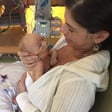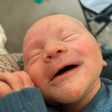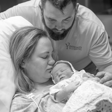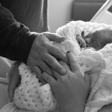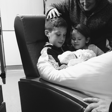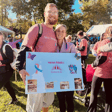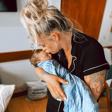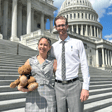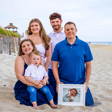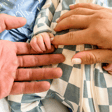
Shandeigh "Nikki" Berry, PhD, RN, CNE-Aydens Aunt
In this episode, we were fortunate to sit down with Nikki Berry, a former OR nurse turned nurse educator and researcher with a focus on the grief and trauma of perinatal loss.
The focus of her research came about as a result of her own tragic life experiences. Nikki’s niece, Ayden, was born with a life limiting condition-anencephaly. As she watched her family go through this loss and tried to offer assistance in developing a plan for the birth of Ayden, she realized the resources and research were severely lacking. She has turned her grief into purpose and has published many articles and formed a non profit to improve resources and conditions for loss families.
Nikki is the founder of a non profit called Project poppyseed. This came about as a result of her personal experiences plus her research work with families for her dissertation. While completing her research she met many families who experienced perinatal loss and was struck by the silence and loneliness families dealt with throughout their grief journey. One of the tenets of Project Poppyseed is breaking the silence surrounding perinatal loss. Another is to conduct research and provide tools for providers to utilize.
Nikki is a beam of light in the community and we are so thankful for the work she is doing. Nikki is someone who “gets it”. It was honestly hard to follow up with commentary because she summed things up so beautifully! Thank you Nikki, you are an amazing human!
The episode picture is a sweet view of Nikki holding baby Ayden after she was born, reading The Day Jimmy's Boa Ate The Wash, her favorite book, to her niece.
If you are looking for an organization to donate to in your baby's memory, please consider Project Poppyseed. You would be funding much needed research.
If you would like to be a participant or view current research please visit https://projectpoppyseed.org/
Thank you for listening!

